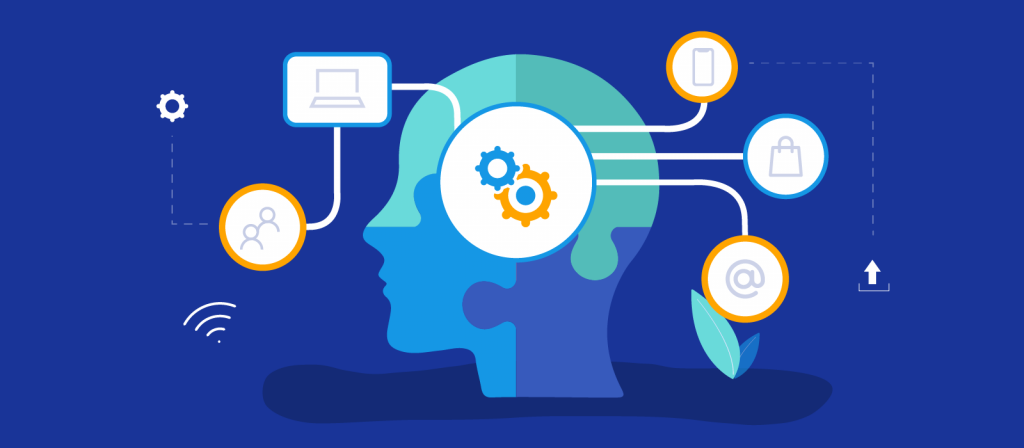What is the Internet of Behavior (IoB) and why is it the future?
November 30, 2021

Introduction
The scope of the Internet of Things (IoT) is constantly expanding and evolving in terms of its complexity, i.e. the way in which devices are interlinked, the computations that can be processed by these devices autonomously, and the data that is stored in the cloud evolve in a more complex way. The shift to mobile devices has ultimately changed the way people communicate and interact with the world around them. The usage data collected by these IoT devices provide valuable information about users’ interests, behavior, and preferences. This has been called the Internet of Behavior (IoB).
Let’s indulge in details of what the Internet of Behavior (IoB) is, what business value it is, and who can benefit from it. In other words, how to turn all the data collected from users’ online activities into something useful which in turn benefits the business. A new concept, the Internet of Behavior (IoB), now provides an answer to this question.
What is the Internet of Behavior and How does it work?

Internet of Behavior, also known as IoB, can be defined as the collection and use of data to drive behaviors. Wearable technologies, individual online activities, and household electrical devices collect this data, which can provide valuable information about user behavior and interests. It is based on human psychology perspectives such as purchasing or following a specific online brand to track and interpret those behaviors using emerging technological innovations and developments in machine learning algorithms.
IoB is the combination of 3 fields:
- Technology
- Data Analytics
- Behavior Science
In theory, IoB could provide organizations with critical insights that enable them to increase productivity, monitor compliance with COVID-19 safety protocols, and more. As an example, consider Uber and its IoT application. It’s used to keep track of drivers and passengers. A survey is conducted at the end of each journey to evaluate the passenger experience. They can go even further by using IoB instead of IoT to collect data without the need for a survey to evaluate the experience. To automatically work on feedback, it is possible to track the driver’s behavior and then interpret the passenger experience.
Importance of Internet of Behavior

IoB provides additional benefits such as better understanding how users interact with products, gaining greater insight into shopping patterns, providing real-time assistance, and communicating with customers in ways that were previously not possible. Furthermore, the IoB concept revolves around proper behavioral data analysis and understanding, as well as the desire to apply that enhanced knowledge to create and promote customized products and services that will be of greater value to consumers and businesses. Corporations and other organizations are heavily investing in this technology to boost their bottom lines. The IoB will also provide benefits to the consumers by providing better-tailored goods and services to their needs and desires.
The Benefits of IoB in Digital Marketing

Because having an internet connection is a requirement for the internet of behavior (IoB), marketing, or more specifically digital marketing services, will be among the biggest gainers of IoB technology. Digital marketing is a field that markets products and services to people all over the world by using data as its primary commodity. If they have access to tools for behavioral analysis and interpretation, they will be in a better position to reach people at the end of the purchasing process. With IoB, organizations and retailers can identify and target specific individuals or groups who could benefit from their products or services, resulting in vast marketing opportunities.
Below are some ways your company can begin to leverage IoB to better serve your customers and employees:
1. Market products more effectively to customers
Many digital marketing agencies are already using analytics tools to uncover insights into common consumer behaviors. Marketers can use the IoB to analyze customer purchasing habits across platforms, gain access to previously unobtainable data, redefine the value chain, and even provide real-time point-of-sale notifications and targeted ads.
2. Improve user experience
Designing UX is a crucial part of sales. Organizations can have a better understanding of people’s attitudes toward specific products or services thanks to the knowledge provided by IoB, making it even easier to resolve customer concerns.
3. Enhance public health
Companies in the manufacturing industry are already using sensors and RFID tags to determine whether or not on-site employees wash their hands regularly. Furthermore, computer vision can determine whether or not employees are following mask protocol or social distancing directives. In the health industry, providers can track patients’ activation and engagement efforts.
4. Improve public safety
Monitoring public safety is opening up exciting new opportunities in a variety of industries. Vehicle telematics is used in one application to track driver behavior and flag erratic or dangerous behavior.
What does the future hold for IoB?

However, the collection of behavioral events data can be problematic. The IoB raises concerns about how businesses gather, navigate, and use data, particularly as more of it is collected. Whatever perspectives are on IoT and IoB, experts predict that they will continue to grow and influence in the near future.
According to Gartner, by the end of 2025, more than half of the world’s population will be subject to at least one IoB program, whether from a commercial or governmental source. IoB, like other technology trends such as AI and machine learning, is likely to spark significant debate about the ethics vs. positive applications of this technology. According to these experts, by 2023, the individual activities of 40% of the global population will be tracked digitally to influence their behavior through the IoB concept. In 2023, that percentage will represent more than 3 billion people worldwide (Gartner 2020).
Conclusion
While the IoB has its advantages and disadvantages, like any other technology, has the potential to simplify consumers’ lives, improve businesses, and assist governments in providing better services to their citizens.
To avoid negative consumer reactions, it will be critical to strike a balance between personalized offers and intrusion. Any company that implements an IoB strategy must have strong cybersecurity in place to protect all of that sensitive data. It is a revolution that in the hands of the right data protection laws, will play an important role soon.
Keep reading about
LEAVE A COMMENT
We really appreciate your interest in our ideas. Feel free to share anything that comes to your mind.




